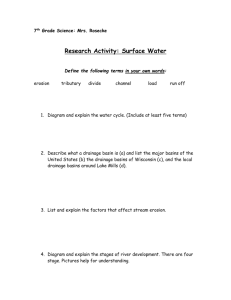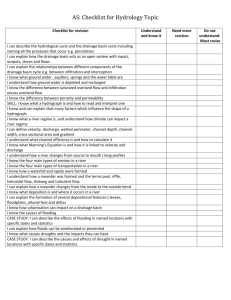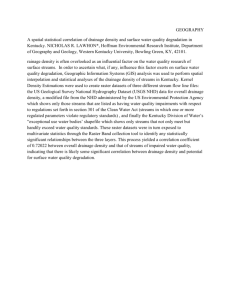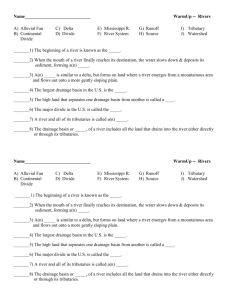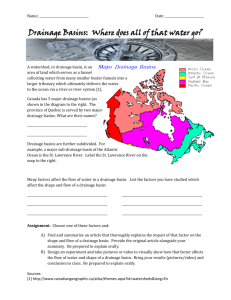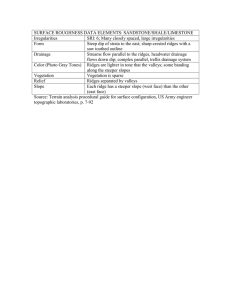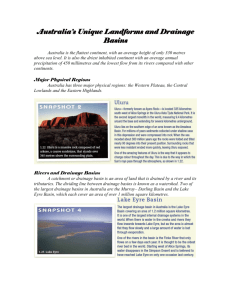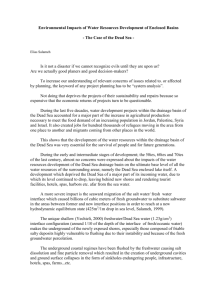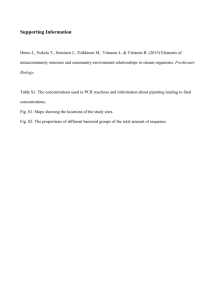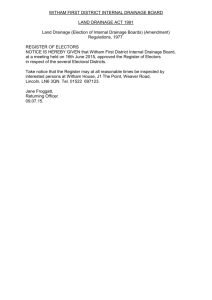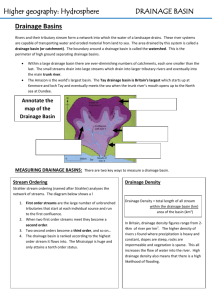Drainage Basins
advertisement
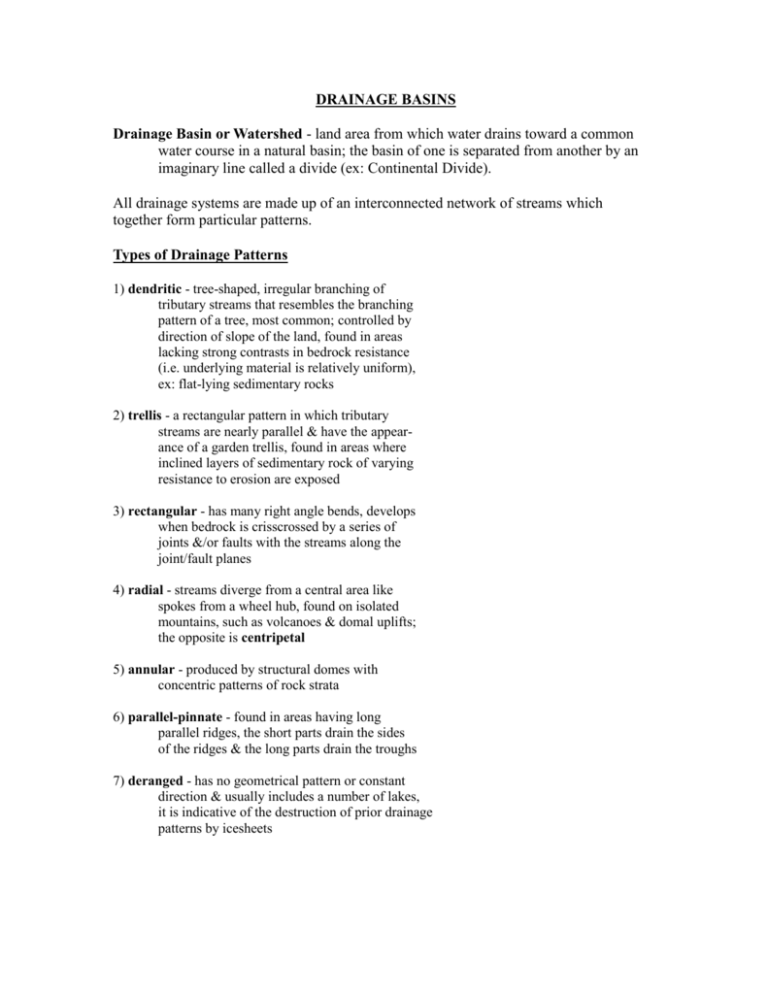
DRAINAGE BASINS Drainage Basin or Watershed - land area from which water drains toward a common water course in a natural basin; the basin of one is separated from another by an imaginary line called a divide (ex: Continental Divide). All drainage systems are made up of an interconnected network of streams which together form particular patterns. Types of Drainage Patterns 1) dendritic - tree-shaped, irregular branching of tributary streams that resembles the branching pattern of a tree, most common; controlled by direction of slope of the land, found in areas lacking strong contrasts in bedrock resistance (i.e. underlying material is relatively uniform), ex: flat-lying sedimentary rocks 2) trellis - a rectangular pattern in which tributary streams are nearly parallel & have the appearance of a garden trellis, found in areas where inclined layers of sedimentary rock of varying resistance to erosion are exposed 3) rectangular - has many right angle bends, develops when bedrock is crisscrossed by a series of joints &/or faults with the streams along the joint/fault planes 4) radial - streams diverge from a central area like spokes from a wheel hub, found on isolated mountains, such as volcanoes & domal uplifts; the opposite is centripetal 5) annular - produced by structural domes with concentric patterns of rock strata 6) parallel-pinnate - found in areas having long parallel ridges, the short parts drain the sides of the ridges & the long parts drain the troughs 7) deranged - has no geometrical pattern or constant direction & usually includes a number of lakes, it is indicative of the destruction of prior drainage patterns by icesheets
